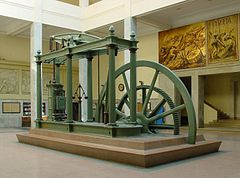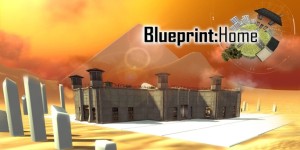Home’s Industrial Revolution: A Future of Personal Spaces
by Phoenix, HSM team writer
What was the first personal estate you purchased in Home? What amenities did it come with? What would you like to change if you could? What was the atmosphere like: standard daylight, open space, box shaped, bi-level?
Recently, thanks to nDreams’ Blueprint:Home, Home has had a badly-needed innovation with personal estates. Have you noticed?
Through the years of personal spaces, some of these estates have been talked about in glowing terms, such as the Hollywood Hills House, the weekend Luxury Lake House, Assassin’s Creed space, Neptune Suite, and of course the Mansion. Beautiful, yes, but for the most part they are all the same: large and spacious, two floors, lots of views. Basically the same, nothing new to see. But we loved them because they were what was new and possible for their time.
How many truly unique apartments have been created? Musicality — also by nDreams, it must be noted — is the apartment where you and your guest can be your own entertainment, where you’re able to create your own music from a selection of sound loops. That stuff kept some quiet for a while, but soon people wanted more in their spaces. More functionality. More bells and whistles. Simply having a fireplace or a fridge that opens wasn’t sufficient.
The estate which is hands-down the best overall value for money is the Sunset Yacht, from LOOT. For the first time, a space had diurnal controls and far more dynamic scenery. But the scenery, likely due to memory limitations, was a bit spartan. Which in turn created feedback asking for more detail in private estates. The Plum Tree Pavilion is possibly the best example of this: it offers an astonishing array of small details — insects, leaves rustling in the wind, et cetera — that make the space feel very real.
Yes, some of the spaces in Home have been good, better, even great. But some have been cut from the same old cookie cutter. So I want to talk about the changes we have seen from four of Home’s developers — LOOT, Digital Leisure, nDreams and Heavy Water — that hint at where personal spaces are headed, as we await the release of Avalon Keep.
In the case of LOOT, the Space Apartment was the most futuristic space to date in Home. Its multi-tiered floor plan, multiple EOD screens, Twitter feed, controllable shutters and Flickr API, all jampacked into one estate, made it far and away the most advanced property to own in Home. And, for a time, it did quiet the zoo. But the consumer always wants more.
Most of the spaces that continued to flood the market, particularly from SCEA, were relatively the same old, same old. Then we got a free space from Digital Leisure: the Hotel Room. Little did we know that free space was going to show us what was possible in a personal space. Instead of a static environment, Digital Leisure periodically reaches into the estate and messes with it — whether you like it or not.
Is this the next great innovation — or necessity — in personal spaces? A veritable what if…gallery of possibilities. What if the developers came up with a space that got updated seasonally? By this, I mean what if they changed the landscape of your space with the seasons? You could have a house with a budding garden in spring, a lush full blown garden of Eden in summer; foliage to rival that of Cape Cod in fall, or the snowy landscape of Colorado, in winter. Is it possible to go back now, to cookie cutter spaces, when we know the possibilities of what a personal space can be? Now that Juggernaut (with Cutteridge) and Digital Leisure (with the Hotel Room) have demonstrated a knack for updating estates to keep them interesting, is it more or less a necessity to drive sales?
What do these updates cost to produce? Is it cost-effective for developers to indulge in it? Would Home’s residents even like it? What if you went to your space and found it raining? What if you couldn’t change it that day? Would this appeal to you or seem like an invasion of privacy?
And the possibilities have grown even further: nDreams went so far outside the box that they had to build one of their own: Blueprint:Home.
If anyone ever said, “If I could build my own home on Home I would,” your day has come. Blueprint gives you several possibilities with construction. Yes, they are basic in design, and though limiting, you really don’t notice when starting out. The very thought of constructing your own space from the ground up is great.
However — and have you noticed this, too? — I find the more you can do and control, the more you want to do and control. You can add any furniture you like or have, though you still have the hundred-item limit, which can still be chewed up quickly with active items. You have a few choices of daytime skies and land, seascapes, and a few assorted features right now. This space is going to get better and better if nDreams continues to keep its finger on Home’s pulse; this estate concept really does depend on how much versatility can be introduced into it.
Now we come to the last developer to bring us something this summer, with what is a possible game-changer: Heavy Water’s Avalon Keep.
Avalon Keep potentially holds great promise for a personal estate. Is it a living space, or a game? It has the look of an older RPG with its colorful graphics. Though I love the possibilities I perceive, I wonder what it will actually hold compared to the updates at Digital Leisure’s hotel and the all-out creative ownership license that nDreams has given us. How will Avalon Keep stand up to the cry for innovation and functionality? We already know it sits on a floating island of sorts, and there is a gift machine and a scavenger hunt game; we know too there are interactive NPCs that come with Avalon Keep, perhaps not unlike those at Granzella’s Edo Village. Heavy Water says there is still more planned for their Keep. Does that mean updates in the future that will change the Keep, or items to purchase for the owners?
What Heavy Water has on its hands with Avalon Keep could be the most exciting personal estate ever developed — if it’s treated as a game instead of just a pretty box. Consider what the consumer ultimately wants to buy with an estate: generally speaking, they’re looking to buy an experience. No one’s ever really tried to turn an estate into a full-blown game before (except for Blueprint, which is a sort of meta-game), and frankly I wonder why.
There will always be completionist consumers who buy every estate just because it’s there. But generally speaking, it’s safe to say that estates need to offer some innovative thinking and unique features if they’re going to be competitive in today’s marketplace. Whereas SCEA seems to have stalled on this front, various third-party developers have picked up the ball and are running with it.
So here’s my question: what can we expect from the next generation of personal estates, if Home continues to thrive, grow and innovate?



